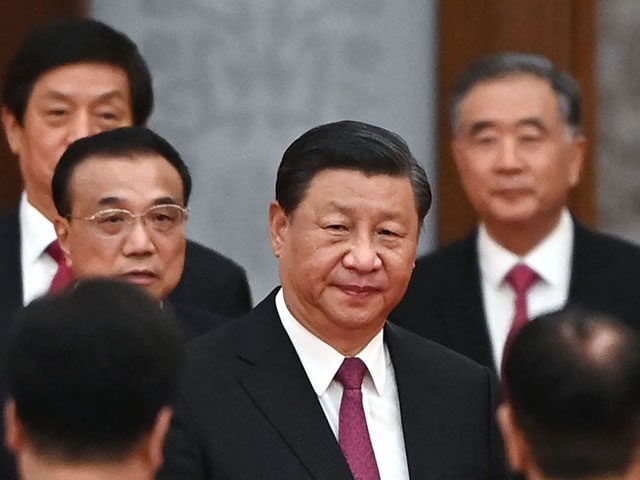China’s state-run Global Times on Friday denounced the U.S. Uyghur Forced Labor Prevention Act as an act of “blasphemy against real democracy, human rights, and free trade.”
The Communist paper predicted “the difficulties of enforcing the law and huge costs paid by American companies after enacting the law will lead to more voices opposing the U.S.’ arbitrary move.”
The Uyghur Forced Labor Prevention Act passed the Senate on December 17 and was signed into law by President Joe Biden on Thursday. The law bans products from Xinjiang province, home of the oppressed Uyghur Muslims, who have been herded into concentration camps, tortured, brainwashed, raped, murdered, and used as forced labor by the Chinese Communist regime.
During the final days of the Trump administration, the U.S. State Department classified China’s oppression of the Uyghurs as an act of “genocide.” Two Uyghur human rights groups filed charges of genocide against the Chinese Communist Party this month in Argentina, which agreed to hear their case.
The Chinese government and its propaganda organs constantly deny or excuse their campaign of terror against the Uyghurs. The regime also uses its “sharp power” of economic leverage to prevent discussion of the Uyghurs’ plight. On Thursday, China was able to force U.S. chipmaker Intel to apologize for sending a letter to its suppliers asking them to avoid sourcing products to Xinjiang.
The Global Times clearly expected China’s pressure campaign against corporations in the free world to bear further fruit by inflicting “huge costs” against companies doing business in China. The article approvingly mentioned Intel’s apology and ground its boot in the submissive American company’s face, warning Intel that the “rage” of the Chinese people has not yet been appeased, and they might demand “more commercial ramifications” for the chipmaker unless it makes further amends.
The Global Times threw in some menacing quotes from Chinese “netizens” that Walmart and Sam’s Club might be punished like Intel for withdrawing Xinjiang products from their shelves, and warned China’s new rare earths mega-corporation might be used as an economic weapon against the United States to retaliate for the Uyghur Forced Labor Prevention Act.
The article approvingly quoted a Chinese university professor predicting “there may be more controversies like the one concerning Intel” and scoffing at “arrogant” U.S. companies for mistakenly believing “their products are irreplaceable and the Chinese people’s rage is temporary.”
The article continued Communist China’s all-out assault on the very notion of human rights and the practice of using international sanctions to moderate the behavior of oppressive regimes like the one in Beijing:
The act means companies are forced to undergo self-review and pull anything related to Xinjiang out of their supply chains – the US is actually attempting to remove Xinjiang from the global industrial chain, Zhu Ying, a professor on human rights law from Southwest University of Political Science and Law, told the Global Times.
The bill has nothing to do with justice or human rights, but it a way for US politicians to hijack US companies’ interests in free trade, and force them to kneel down to the US’ ideological bias. It also hijacks Americans’ right to know the real China and the truth about Xinjiang. It’s blasphemy against real democracy, human rights and free trade, Zhu said.
The move also hurts the interests of US companies. For example, as China produces 22 percent of the world’s cotton, 84 percent of which comes from Xinjiang, the US’ previous moves and hyping of banning imports from China’s Xinjiang have hurt US apparel companies.
The Global Times’ hysterical rant against the Uyghur Forced Labor Prevention Act never got around to explaining how it was supposed to be “blasphemy against democracy,” since it was duly debated and passed by the American legislature. The closest it came was sprinkling in some dark insinuations that sponsors of the bill were using it for personal political gain, and accusing the Biden administration of using the bill to pressure China for trade concessions.

COMMENTS
Please let us know if you're having issues with commenting.